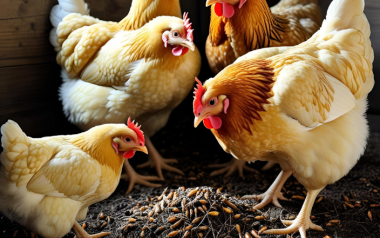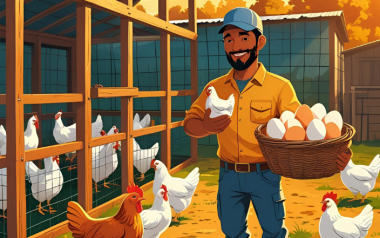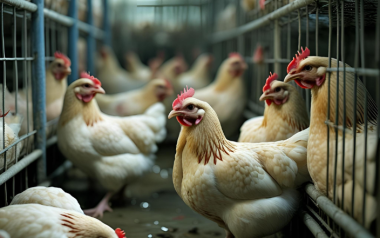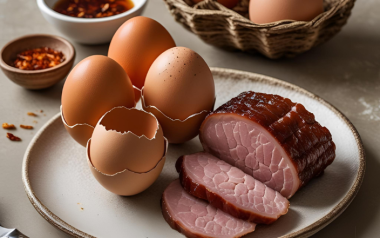Sources: Available upon request
07 Aug 2025
Insect feed for healthy poultry
The use of insect-derived products in poultry feed is gaining momentum as a sustainable and health-promoting alternative to conventional feed ingredients.
The use of insect-derived products in poultry feed is gaining momentum as a sustainable and health-promoting alternative to conventional feed ingredients. Insects such as black soldier fly larvae (BSFL), houseflies, and mealworms are rich in proteins, essential amino acids, and bioactive compounds that contribute to improved poultry health and performance.
- One of the key advantages of insect products is their antimicrobial properties.
- BSFL, for instance, contain chitin, chitosan, lauric acid, and antimicrobial peptides, which have shown potential in reducing microbial infections in poultry.
- Studies have demonstrated that broilers fed with BSFL meal exhibited better recovery from necrotic enteritis caused by Clostridium perfringens, compared to those fed with traditional soy-based diets.
- These bioactive compounds help modulate gut microbiota, enhance immune responses, and reduce the need for veterinary antimicrobials, thereby addressing concerns about antibiotic resistance.
In addition to disease resistance, insect products can improve feed efficiency and growth performance. In vivo trials revealed that broilers challenged with coccidiosis and fed with 10% BSFL meal showed superior gain-to-feed ratios during recovery periods. Moreover, insect meals are highly digestible and palatable, meeting poultry nutritional requirements while offering a natural protein source.
Insects also contribute to environmental sustainability. They can be reared on organic waste, transforming low-value by-products into high-quality feed. This not only reduces greenhouse gas emissions and land use but also supports circular economy principles. Compared to traditional protein sources like soybean and fish meal, insect farming requires less water and space, making it a viable solution to feed-food competition.
- Despite promising results, challenges remain in scaling up insect farming and ensuring consistent quality and safety.
- Processing methods, rearing substrates, and harvesting age significantly influence the nutritional profile of insect meals.
- Regulatory frameworks are evolving to support the inclusion of insect products in animal feed, with several species already approved for use in the European Union.
In conclusion, insect products offer a multifaceted approach to enhancing poultry health, improving feed efficiency, and promoting sustainability. Continued research and investment in insect farming technologies will be crucial to unlocking their full potential in commercial poultry production.






































